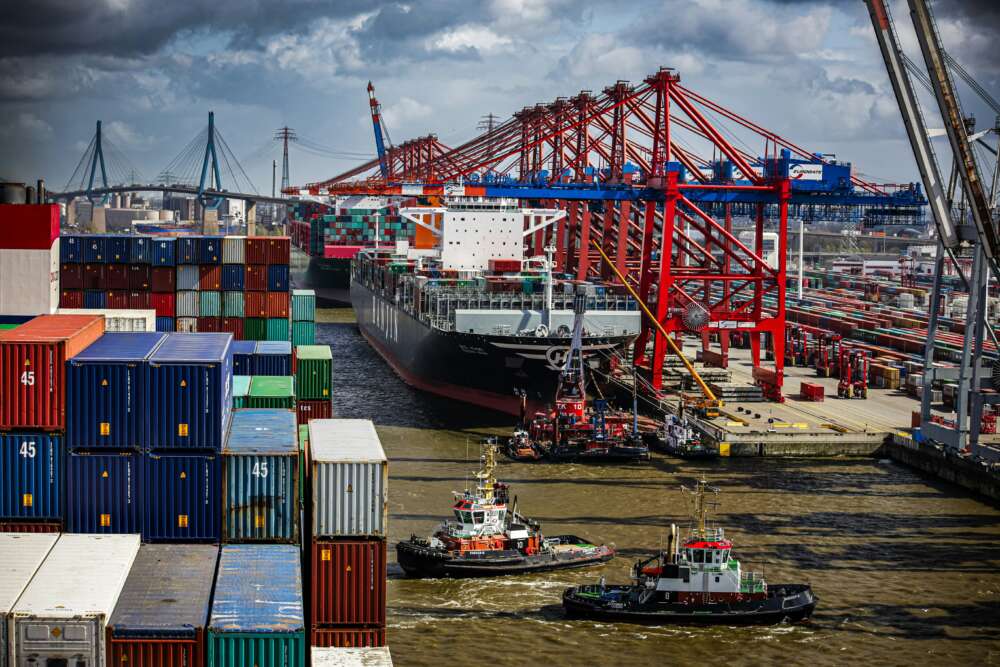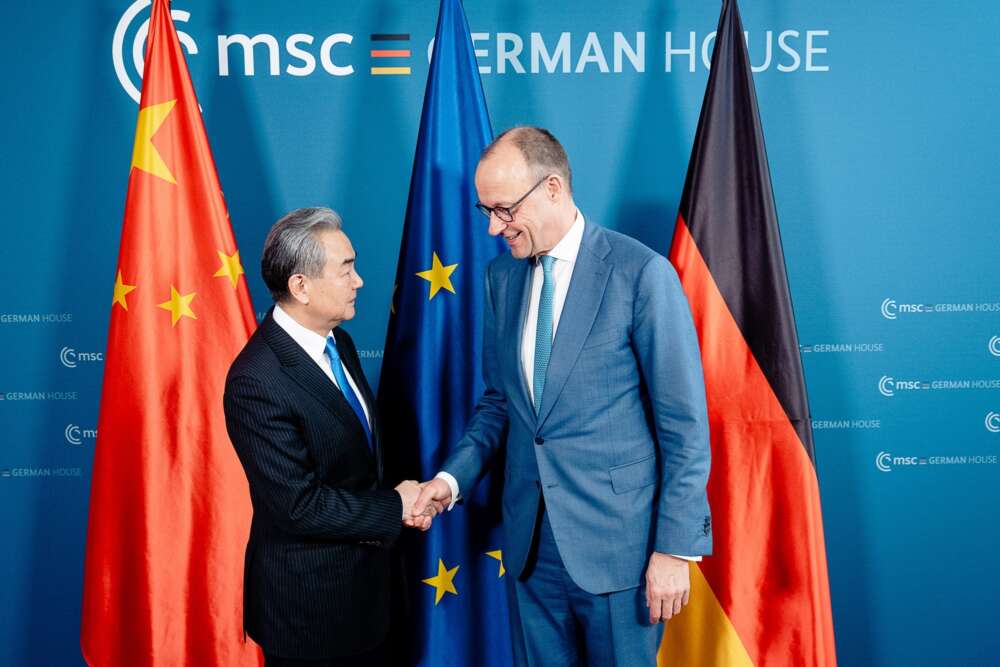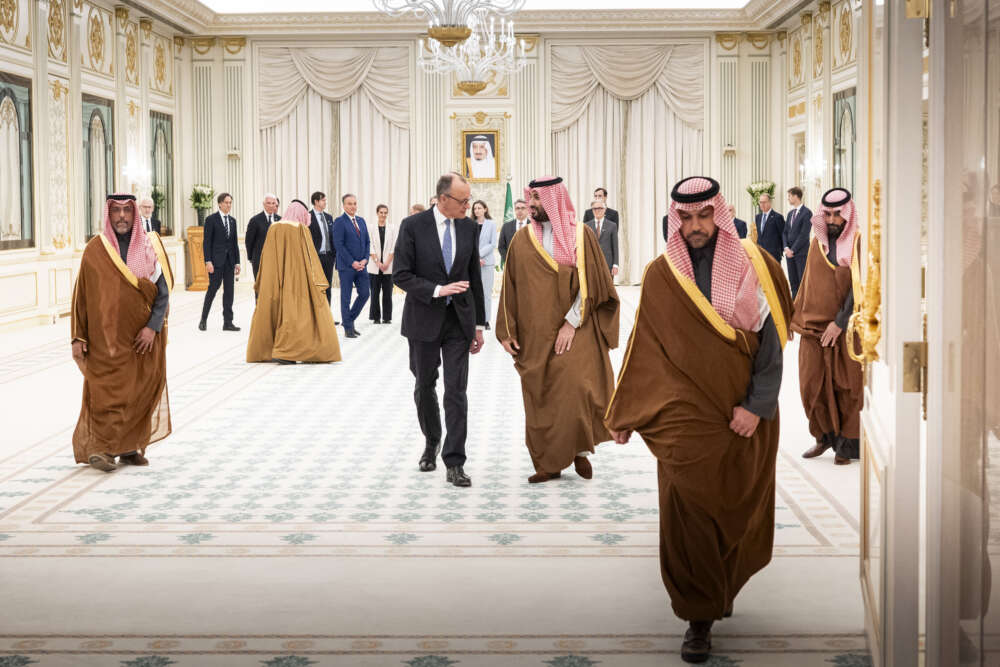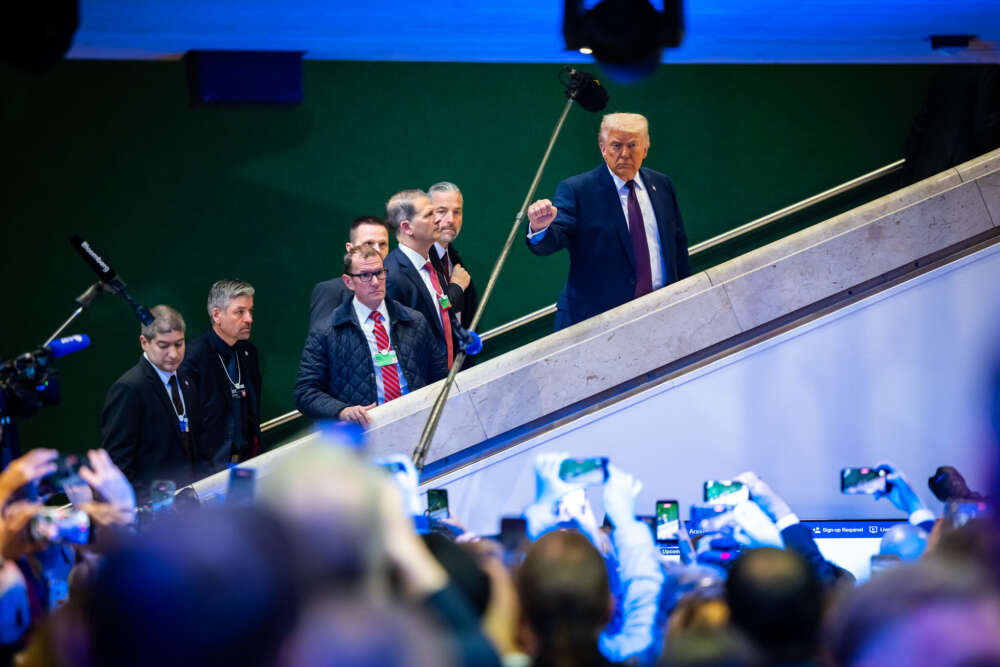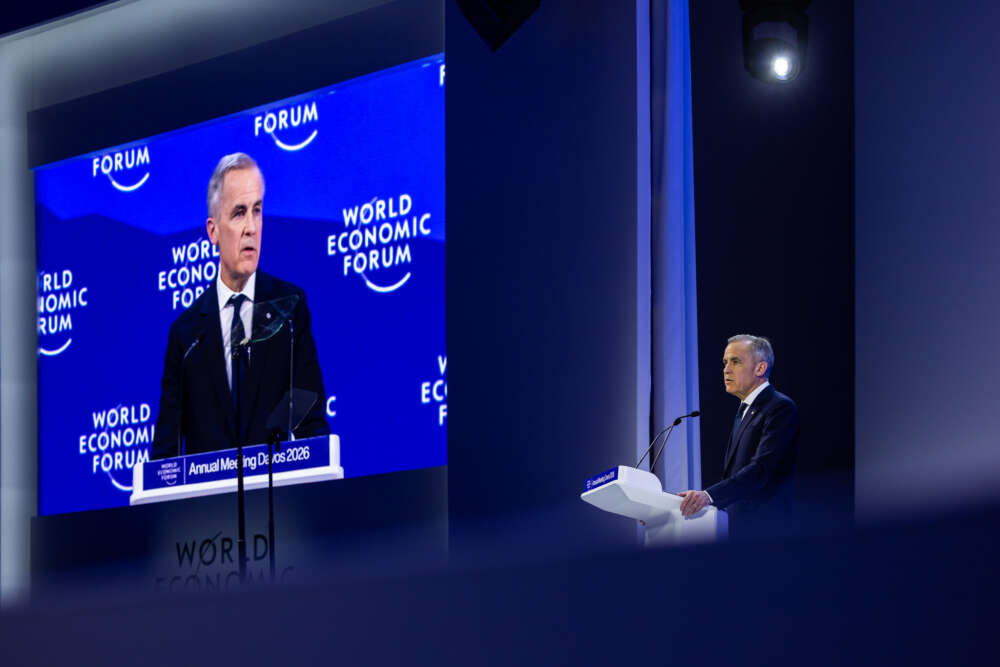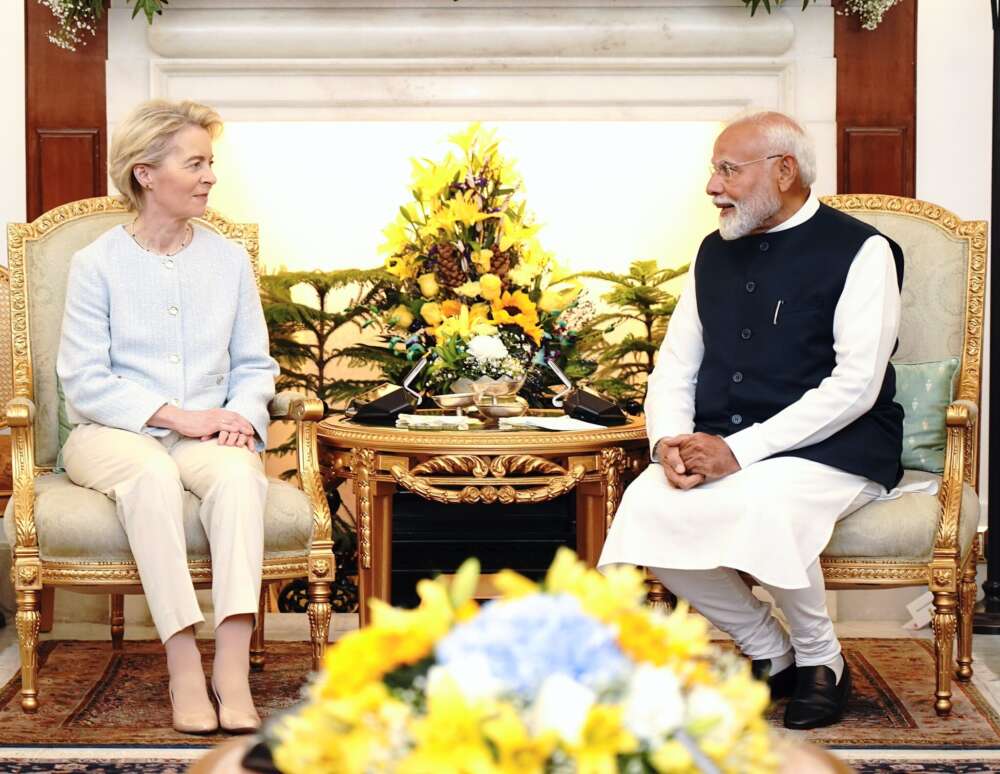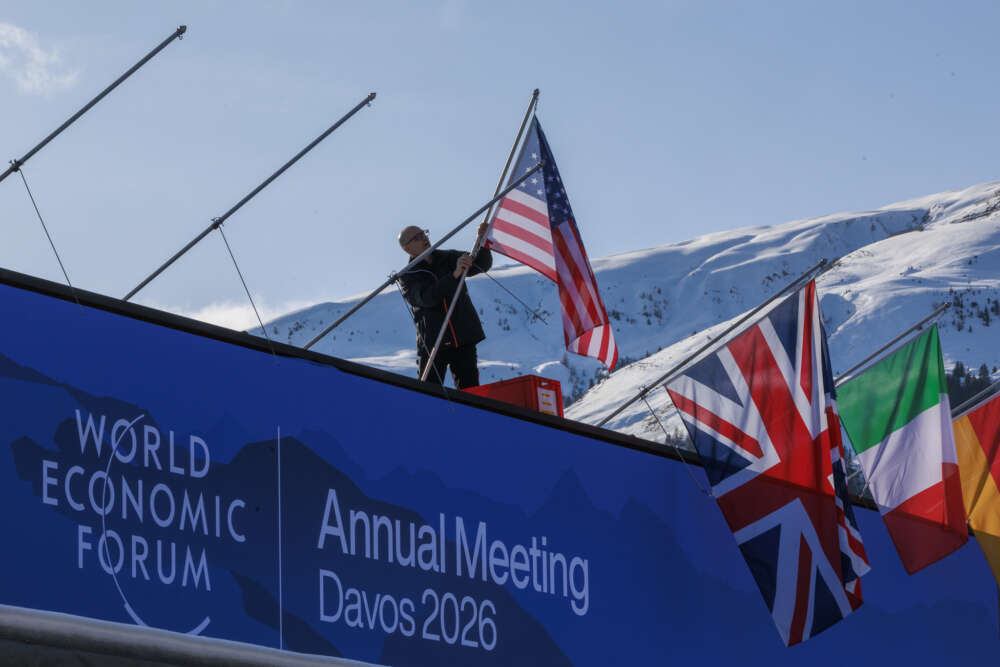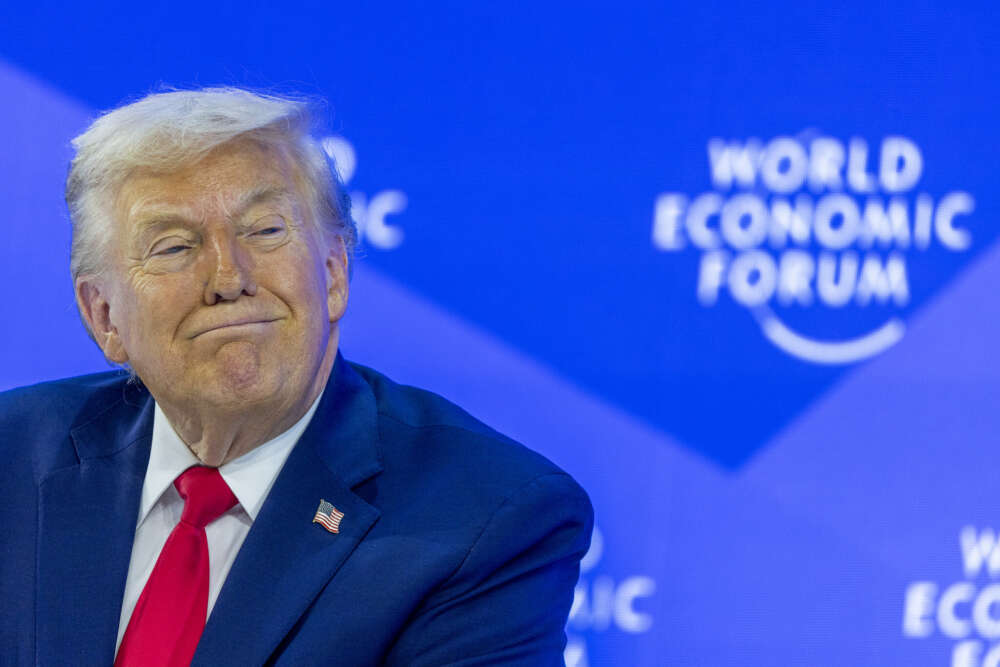Olaf Scholz Has a China Problem
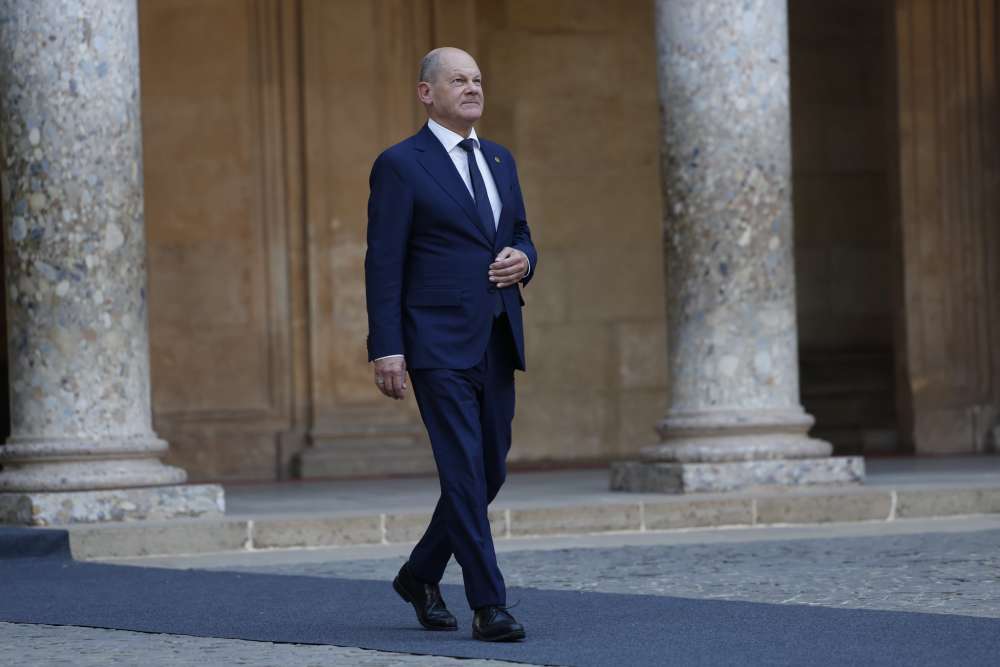
Last December, in a speech outlining the agenda of his government, German Chancellor Olaf Scholz demanded that “we need to base our China policy on the China we find in reality,” promising to pursue “German and European interests” with “great self-confidence.” Yet, Scholz shows very little of this realism and self-confidence as he prepares for this Friday’s inaugural visit to Beijing to meet with Chinese leader Xi Jinping.
Last week, Scholz gave in to Chinese pressure and pushed through a deal allowing China Ocean Shipping Company (known as Cosco) to buy a stake in a terminal at Germany’s main port of Hamburg — against the objections of six ministers. This put Scholz at odds with an emerging consensus across party lines that Germany urgently needs to reduce its dependency on China. It also signaled weakness vis-à-vis Xi, who just self-confidently presided over his coronation as leader for life. It’s high time for Scholz to change course and get serious about Xi’s China. He needs to use his visit in Beijing to confront the Chinese leader on German and European interests, including Xi’s support for Russian President Vladimir Putin’s war and his threats against Taiwan.
A tectonic shift is under way in Germany, breaking with former German Chancellor Angela Merkel’s approach of betting on ever closer economic relations with Beijing. The catastrophic failure of Germany’s Russia policy has accelerated this shift. There is now an emerging consensus in all major center-right and center-left parties that Germany needs to reduce its dependency on China.
Christian Democratic Union opposition leader Friedrich Merz advocates taking the warnings of Germany’s intelligence services on the dangers of China dependency seriously. But the strongest voices for a fundamental shift can be found in the ranks of Scholz’s two coalition partners: the Free Democratic Party (FDP) and the Greens. FDP vice chairman Johannes Vogel demands “putting up a clear stop sign for China.” Foreign Minister Annalena Baerbock of the Greens told business leaders that Germany could no longer afford to act based on a “Business First mantra” without taking into account “long-term risks and dependencies.” In a similar vein, Vice Chancellor Robert Habeck of the Greens has promised “no more naiveté” in Germany’s dealings with Beijing. His ministry for economic affairs pushes a number of concrete measures to incentivize German companies to diversify from the Chinese market, including stopping all public investment guarantees for investments in China. According to one report, it is even considering outbound investment controls for German investments in China.
A significant change of attitudes toward China is also taking place in Scholz’s Social Democratic Party (SPD). Already in 2020, the SPD parliamentary group argued that systemic rivalry is the defining feature of Germany’s relationship with China. After Russia’s invasion of Ukraine, key members of the party leadership invested in drawing lessons from the failure of the “change through trade” approach vis-à-vis Russia that was a core element of the SPD’s political identity. SPD co-chairman Lars Klingbeil concluded that “Germany needs to drastically reduce its dependencies on authoritarian countries,” including China. The most prominent Social Democrat to argue for a fundamental rethink is German President Frank-Walter Steinmeier, who as foreign minister pushed closer economic and energy relations with Russia. Speaking from Kyiv, Ukraine’s capital, last week, he said, “We need to reduce one-sided dependencies, especially with regard to China.” That view is shared by many in the business community, especially the Federation of German Industries (BDI) and many smaller and medium-sized companies that experience increasingly unfair competition on the Chinese market. In an influential paper in 2019, the BDI described China as a “systemic competitor.”
In a peculiar coalition, the strongest pushback against a fundamental China rethink comes from the Left Party and the leaders of those large companies who have made themselves strongly dependent on the Chinese market, especially in automotive (i.e., Volkswagen, Mercedes-Benz, and BMW), engineering (i.e., Siemens) and chemicals (i.e., BASF). BASF CEO Martin Brudermüller is one of the most pro-Beijing CEOs calling for an end to “China-bashing.” The Chinese government rewarded him with an exemption from the strict zero-COVID rules. In September, Brudermüller was able to travel to China without having to quarantine to inaugurate BASF’s new $9.9 billion investment in Zhangjiang, with Chinese Vice Premier Han Zheng in attendance. Volkswagen CEO Oliver Blume recently defended the company’s plant in Urumqi at the heart of China’s Xinjiang province, saying, “This is about taking our values out into the world. Also to China in the Uyghur region.”
This year, Scholz did warn German businesses not to “put all eggs in one basket,” stressing the need for diversification away from China. Scholz also pushed economic and political diversification by choosing to visit Japan well before his first trip to China, expanding ties with India as well as going to Vietnam and Singapore in November soon after his trip to Beijing. But the chancellor shies away from pulling political support for companies that have chosen to further deepen their dependence on the Chinese market. Otherwise, he would not have invited the CEOs of BASF, Volkswagen, and Siemens to join him next week on his short trip to Beijing. By bringing a business delegation stacked with some of the most pro-Beijing CEOs, Scholz appears to continue with Merkel’s “Business First” approach to China. Much of the rest of Europe sees this as “Germany First.” French President Emmanuel Macron, who would like to have a larger slice of the China cake for French companies, made public that the German chancellery had refused the offer for Macron and Scholz to go together to meet Xi. Scholz only met Xi briefly once on the sidelines of a G‑20 meeting Scholz hosted as then-mayor of Hamburg in 2017. It is understandable that he wants to go on a solo trip first to build a personal relationship with Xi. But it was a big mistake by Scholz to take a business delegation rather than just making this a purely political trip.
The even bigger mistake was to push through Cosco’s acquisition against the objections of six ministers who all recommended to block the deal. Cosco is a direct instrument of the Communist Party state. It is an extremely well-run company seeking a dominant position globally through acquisitions and integrated data and goods flows, all while taking advantage of the economies of scale of its closed-off home market. Cosco is set up to make profits while, at the same time, serving China’s global political, economic, and military ambitions. Where necessary, the company can also serve as a tool of political coercion. It has already bought stakes in ports across Europe (including with Hamburg’s main competitors Rotterdam and Antwerp) and also in the United States (where it owns stakes in Long Beach, Los Angeles, and Seattle). In Europe, Cosco skillfully plays major ports, all publicly owned, off one another. Scholz could have chosen to turn the tables on Cosco by pursuing a European port initiative that would have presented Cosco with a united European front. Rather, the chancellor gave in to Chinese blackmail. Beijing had threatened economic consequences should Germany not have given a green light to the Cosco deal. Chinese leadership will continue to seek to exploit this weakness over and over again.
The Cosco saga demonstrates that Scholz’s approach is still too influenced by his two formative experiences on China. The first was when he was mayor of Hamburg between 2011 and 2018, when he put a strong emphasis on expanding business ties with China. In a 2017 interview with a Chinese state broadcaster, Scholz advertised Hamburg as the “largest Chinese port in Germany and Europe,” signaling support for Beijing’s Belt and Road Initiative. The second was when he was Germany’s finance minister from 2018 to 2021, when Scholz interacted with the most technocratic and pragmatic elements of the party state. Both experiences do not serve Scholz well in dealing with “the China we find in reality.” As Hamburg mayor, you can afford to limit your foreign policy to that of a salesman. If you do so as Germany’s chancellor, you violate German and European interests. And dealing with Xi, who made preparing to struggle the centerpiece of his agenda, is exactly the opposite of dealing with the pragmatic elements of the Chinese system that by now have mostly been sidelined.
Xi and the Chinese propaganda apparatus will seek to probe Scholz’s weaknesses and try to drive a wedge between Scholz and his European partners as well as the United States. Scholz’s recent decision to approve the take-over of a semiconductor production plant by a subsidiary of Chinese company just as the US announced tough new restrictions on semiconductors may be treated by Beijing as an invitation to deepen divides between Germany and its allies on China policy. But the chancellor is far from powerless to prevent this from happening. By self-confidently standing up for core German and European interests during his visit to Beijing, Scholz can seek to put his China policy back on the right track.
Scholz should make it clear that Beijing pays a political price for continuing to stand by Putin even as he threatens nuclear war. He should push Xi during the visit to reiterate China’s commitment in January’s statement of the five permanent members of the United Nations Security Council that “a nuclear war cannot be won and must never be fought.” Scholz should also clearly signal that Beijing’s increasingly aggressive stance against Taiwan is unacceptable and that Germany stands united alongside like-minded partners to deter any Chinese attack on Taiwan. He should also clearly speak out against repression in Tibet, Xinjiang, and Hong Kong — beyond building on his clear statement on Xinjiang during his speech at the U.N. General Assembly in September. Scholz should also signal a commitment to Europeanize the government consultations that Germany is scheduled to hold with China in January 2023. He should signal European willingness to cooperate with China on the climate crisis while protecting its own clean technology industry from unfair competition. Instead of presiding over the signing of new business deals, Scholz should clearly address the concerns German companies have about dealing with an increasingly totalitarian system that puts ideologies over economic interests. All this will make sure that next time, nobody gets the idea of greeting him with “Welcome back, Ms. Merkel.”
This commentary was originally published Foreign Policy on October 31, 2022.
